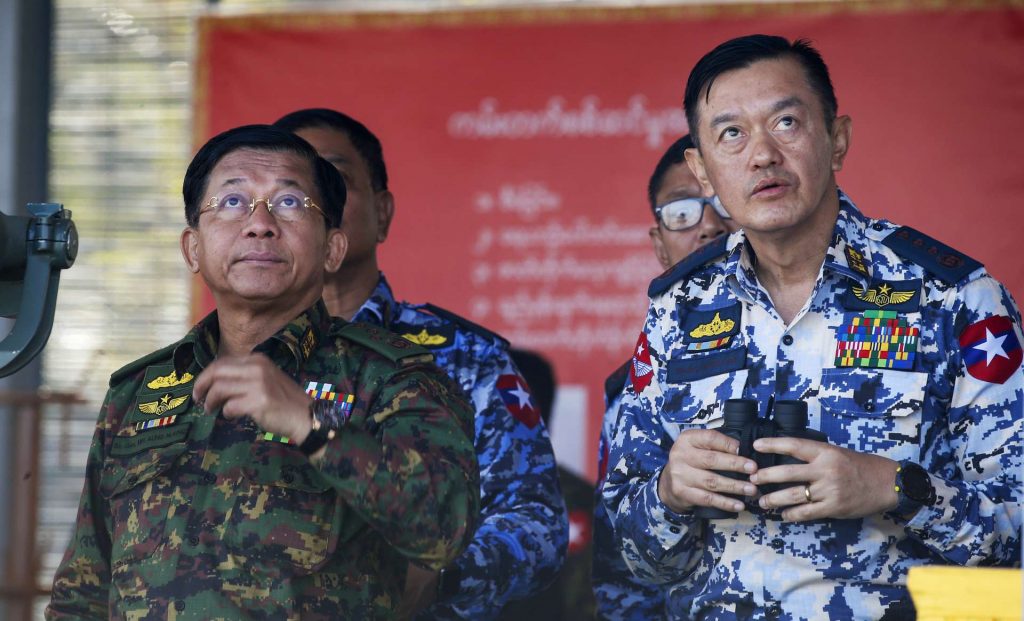[ Reuters ] How family of a Myanmar junta leader are trying to cash in
A review of an archived version of the account, which has since been shut down, revealed the username was a pseudonym belonging to Ivan Htet, the 33-year-old son of a leading figure in the coup: the chief of the air force, Maung Maung Kyaw.
But Ivan Htet hasn’t just been an enthusiastic supporter on social media of the Tatmadaw, the name for the Burmese military, which has dominated political life since independence in 1948 for Myanmar, then called Burma. He is also trying to cash in, helping equip the military, along with his wife Lin Lett Thiri, who co-founded a private firm to supply Myanmar’s armed forces, Reuters has found.
Corporate filings and a military procurement document reviewed by Reuters, as well as interviews with friends and associates of the family and with five defence contractors, show that the couple are part of a young generation of military families with business interests across the economy.
Besides his son and daughter-in-law, the air force chief’s nephew and niece have also prospered: They own a company that supplies the country’s aviation sector, corporate filings and media interviews show. Two defence contractors, a business associate and a former Myanmar airline executive told Reuters that the nephew was also involved in deals to supply the armed forces.
Maung Maung Kyaw, 57, was promoted to head the air force in 2018 and has presided over a modernisation program, with hundreds of millions of dollars spent on upgrading aircraft used to support a military that for decades has been accused of human rights abuses.

Corporate records show that three months later, Ivan’s new wife, a British-trained architect, set up Alliance Engineering Services Co., Ltd., which has a mission to modernise the defence and security industry, according to its website.
Two defence contractors and a business associate interviewed by Reuters said the firm is led by Ivan Htet himself. He discussed deals with them, some of which were completed, those sources said. These ranged from spare parts for drones to the purchase of sonar and radar equipment.
Reuters has reviewed a letter sent in 2020 from Alliance Engineering Services to suppliers requesting quotes for spare parts for Israeli-made surveillance drones. The drones have been used by the military against ethnic armed groups, according to photographs from one of the groups. The document was circulated by Ivan Htet, a person with knowledge of the matter said. Reuters was unable to determine if any deal went through or how much it was worth.
Linn Htet, 33, and his sister, Mon Yee, 31, the Singapore-based nephew and niece of the air force chief, own a family business offering consulting, spare parts, leasing and maintenance services to the aviation sector in Myanmar and other markets. Linn Htet is also a director of state-owned Myanmar National Airlines, and has represented major U.S. aviation brands like Bell and Cessna in the country, according to local media reports in Myanmar and an archived version of the website for a company he has represented.
Military Royalty
Family members of Air Force chief Maung Maung Kyaw have prospered. The air force chief’s father, Kyaw Htin, was a former commander in chief of the military.

For the military, Linn Htet also supplies spare parts for a range of aircraft, according to one of the defence contractors and the business associate interviewed by Reuters.
All of the contractors spoke on condition of anonymity for fear of reprisals by the military regime.

